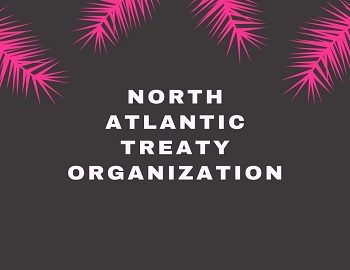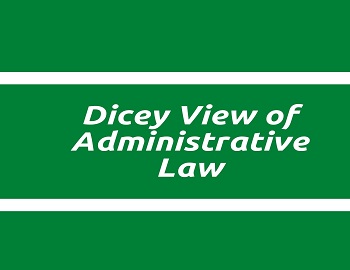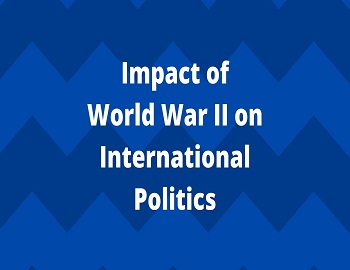Table of Contents
NATO:
The North Atlantic Treaty (NATO) was signed in Washington on 4th April 1949, by the United States, Canada, Belgium, Denmark, France, Norway, Portugal and the United Kingdom. Greece and Turkey became members in February 1952. The Federal Republic of Germany joined NATO in May 1955.
NATO is the central element in the network of multilateral and bilateral alliances of the non-communist world. The United States is the strongest, and the pivotal power in the system. Two factors, fear of Soviet imperialism and serious doubt that the UN would be inadequate to protect its members against Soviet expansion were primarily responsible for the formation of NATO.
Provisions of the North Atlantic Treaty (NATO):
The North Atlantic Treaty (NATO) has a preamble and 14 Articles. The Preamble states that parties to the treaty reaffirm their faith in the purposes and principles of the Charter of the United Nations and their desire to live in peace with all peoples and all governments. They are determined to safeguard the freedom, common heritage and civilization of their peoples, founded on the principles of democracy, individual liberty and the rule of law. They are resolved to unite their efforts for collective defence and the prosecution of peace and security in the North Atlantic area.
- Article 1 provides that the parties undertake to settle any international disputes in which they may be involved by peaceful means in such a manner that international peace and security and justice are not endangered and to refrain in their own international resolutions from the threat or use of force in any manner inconsistent with the purposes of the United Nations.
- Article 2 provides that the parties will contribute towards the development of peaceful and friendly international relations by strengthening their free institutions, by bringing about a better understanding of the principles upon which those institutions are founded and by permitting conditions of stability and well-being. They will seek to eliminate conflict in their international economic policies and encourage economic collaboration between any or all of them.
- Article 3 provides that in order to achieve more effectively the objectives of this treaty, the parties separately and jointly, by means of continuous and effective self-help and mutual aid, will maintain and develop their individual and collective capacity to resist armed attack.
- Article 4 provides that the parties will consult together whenever in the opinion of any of them, the territorial integrity, political independence or security of any of the parties is threatened.
- Article 5 provides that the parties agree that an armed attack against one or more of them in Europe or North America shall be considered an attack against all of them. They agree that if such an armed attack occurs, each of them in the party or parties so attacked by collective self-defence will assist the party or parties so attacked by taking forthwith individually and in concert with the other parties such action as it deems necessary, including the use of armed force, to restore and maintain the security of the North Atlantic area. Any such armed attack and all measures taken as a result thereof shall immediately be terminated when the Security Council has taken the measures necessary to restore and maintain international peace and security.
- Article 6 provides that an armed attack on one or more of the parties is deemed to include an armed attack on the territory of any of the parties in Europe or North America, on the Algerian Departments of France, on the occupation forces of any party in Europe, on the islands under the jurisdiction of any party in the North Atlantic area north of the Tropic of Cancer or on the vessels or aircraft in this area of any of the parties.
- Article 7 provides that this treaty does not affect any way the rights and obligations under the Charter of the parties which are of the United Nations or the primary responsibilities of the Security Council for the maintenance of international peace and security.
- Article 8 provides that each party declares that none of the international engagement now in force between it and any other of the parties or any third state is in conflict with the provisions of this treaty and undertakes not to enter into any international engagement in conflict with this treaty.
- Article 10 provides that the parties, may by unanimous agreement, invite any other European State in a position to further the principles of this Treaty and to contribute to the security of the North Atlantic area, to accede to this Treaty.
- Article 12 provides that after the Treaty has been in force for 10 years, or at any time thereafter, the Parties shall, if any of them so requests, consult together for the purpose of reviewing the Treaty, having regard for the factors then affecting peace and security in the North Atlantic area, including the development of universal as well as regional arrangements under the Charter of the United Nations for the maintenance of international peace and security.
- Article 13 provides that after the Treaty has been in force for 20 years, any party may cease to be a party one year after its notice of denunciation has been given to the Government of the United States which shall inform the other parties concerned.
Role of the NATO:
According to President Eisenhower, NATO is “a basic and indispensable element of American defence alliances against the continuing Soviet communist threat to the peace and security of the world”.
According to F. H. Hartmann, “NATO is a natural and logical supplement to the economic aid given to Western Europe under the Marshal plan”. According to the State Department of the American Government: “People are reluctant to make the strenuous effort and personal sacrifice required for successful economic recovery when they fear that their land will be over-run by alien armies and the fruits of their toil taken from them………. If world recovery is to progress, the sense of security must be restored. Since the threat of armed aggression is at the root of insecurity, collective action which will enable free nations to confront a potential aggressor with preponderant power together with economic recovery, and political stability provides the only satisfactory antidote to fear”.
This view was put forward by President Truman in these words: “If we can make it sufficiently clear in advance, that any armed attack affecting our national security would be met with overwhelming force, the armed attack might never occur”. According to Senator Vanderbeg “in my opinion, the mere formal recognition of this community of interest in the event of an armed attack upon the Atlantic community……. would be an infinite assurance against World War III because in my opinion if the Kaiser in World War I or the Fuehrer in World War II had been on notice that an armed attack against any of these friendly nations with whom we associate ourselves would be considered a cause even for us to consider and study and determine whether or not we would enter into the common defence, that would have stopped both of those wars before they occurred”.
The advocates of NATO also maintains that its creation will be a source of considerable support to the United States. According to the state department White Paper: “Atlantic Pact is a collective self-defence arrangement among countries of the North Atlantic area who, while binding together to resist armed attack against any one of them, specifically reaffirm their obligations under the Charter to settle their disputes with any nation solely by peaceful means. It is aimed at coordinating the exercise of the right of self-defence specifically recognised in Article 58 of the United Nations Charter“. It is designed, therefore, to fit precisely into the framework of the United Nations and to assure the practical efforts for maintaining peace and security in harmony with the charter.









Comments (No)